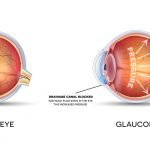While the pharmaceutical industry scrambles unsuccessfully to concoct some drug to counteract the symptoms of dementia, a research team from England has found an easy nutritional intervention that actually seems to reverse cognitive impairment. Scientists at two British Universities–the University of Reading and the Peninsula Medical School–fed elderly rats a regular diet supplemented with about 150 grams (five ounces) of blueberries a day for 12 weeks. After three weeks, the rats showed considerable improvement in performing tasks involving spatial memory. In fact, the blueberry-enhanced old rats performed as well as young rats, improving memory by 83 percent, and the improvements continued for the remaining nine weeks of the study.
Other studies have found significant benefits from blueberry consumption. Researchers in 1999 also worked with aging rats who enjoyed blueberry supplementation with their meals. Those rats improved their short-term memory, balance, and coordination almost to youthful levels. Other rats fed strawberries or spinach also saw memory improvements, but no improvement in either balance or coordination.
What magic do blueberries hold? The beneficial effect probably comes from the flavonoid and stilbenoid content in the fruit. Flavonoids are a type of antioxidant found under the skin of brightly colored fruits and vegetables. After eating blueberries, the rats’ brains showed elevated levels of two types of flavonoids–anthocyanidins and flavenols. Blueberries also are high in pterostilbene, a stilbenoid chemically related to resveratrol. Pterostilbene has not only been shown to fight off and reverse cognitive decline, but it also has demonstrated anti-cancer properties.
According to an article in Biomedicine, flavonoids have the ability to cross the blood-brain barrier. “It is believed that [flavonoids] exert their effects on learning and memory by enhancing existing neuronal (brain cell) connections, improving cellular communications and stimulating neuronal regeneration,” says the article. In other words, flavonoids interact directly with nerve cells that carry messages to the brain, possibly helping those cells to regenerate and to communicate with each other. Also, flavonoids are known anti-inflammatory agents and so most likely reduce any inflammation in the brain.
This finding, however, does not mean that you have to restrict your diet to blueberries in order to reap the cognitive benefits of flavonoids. Other good sources of flavonoids include dark chocolate, red wine, apples, oranges, grapefruit, most types of berries, cherries, tea, thyme, kale, hot peppers, onions, and fennel. Capers and parsley have off-the-chart high levels. But blueberries are special, because while most food sources contain just one type of flavonoid, blueberries contain an array of different types of flavonoid compounds, particularly the anthocyanidins and flavenols, and they also contain the stilbenoid, pterostilbene, as mentioned above.
A study from Rutgers last year found that eating blueberries cuts colon cancer risk by 57 percent mostly due to the presence of pterostilbene. Pterostilbene inhibits genes that cause inflammation and has been linked to reduction in the size of pre-cancerous lesions. Blueberries are also a good source of ellagic acid, which has anti-cancer properties. Isn’t it amazing how much good stuff such a little berry can contain?
If you’re not convinced that it’s a good thing to eat blueberries, here’s some more evidence. In another study earlier this year, pigs fed the equivalent of two cups of blueberries daily reduced their “bad cholesterol” by 20 percent. Other research has discovered that blueberries improve night vision, prevent urinary tract infections, reduce the chance of ischemic stroke, improve heart health, and possibly reduce blood pressure.
One of the directors of this latest work, Dr. Matt Whiteman of the Peninsula Medical School, said, “Our research… supports the idea that a diet-based approach could potentially be used to increase memory capacity and performance in the future.” The research team plans to directly test the impact of flavonoid-rich foods on subjects who have Alzheimer’s or cognitive impairment.
And so, for those of you who have been praying for a miracle-drug to protect you from the threat of getting dementia, Alzheimer’s, or a host of other diseases, take note: that “drug” may be in the supermarket–in the form of something delicious, cheap, and colorful — and without deleterious side effects. There aren’t many drugs you can say the same about.
:hc
—
To learn more about how to naturally reverse aging, visit our Anti-Aging Program for step-by-step instructions.












What about frozen blueberries? Can they do the job as well?
Freezing does not appear to damge the bioactives. So frozen blueberries work as well. But as with all foods, the way blueberries are grown does matter. Frozen wild and organic blueberries have higher concentrations of the important biochemicals than do the brands generally available in most mass chain supermarket.
It makes me wonder why the FDA doesn’t impose stricter elimination of toxic foods and the containers they are packaged in. Reading food labels is a nightmare for anyone that is not familiar with the unhealthy chemicals that are used to maintain “freshness” as food products are stored for shelf-life longevity.
If freezing blueberries does
If freezing blueberries does not harm the pterostilbenes, does baking them in pies or drying them hurt? And what about freezing, baking, drying on the other antioxidants? Cranberries also have pterostilbenes I hear. What about them being heated, frozen, or dried?
i have heard that berries are
i have heard that berries are good source of resveratrol does that mean that i can also be a good ingredient?
How many berries do you have
How many berries do you have to eat to get the benefits?
The study was done with mice,
The study was done with mice, not humans. It is merely indicative of benefits. The amount for humans is open to question. But given the notable benefits for mice, not to mention the numerous other benefits for the brain found in other studies, any amount of berries will be better than none.
Just looking for some
Just looking for some references as to where you received this information from?
This article has active links
This article has active links to all the research, what exactly are you looking for?